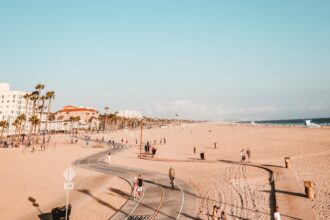Depersonalization and derealization are complex psychological phenomena that can leave you feeling detached from your own thoughts, feelings, or sense of self. When you experience depersonalization, it may feel as though you are an observer of your own life, as if you are watching yourself from a distance. This can lead to a profound sense of disconnection from your body and emotions, making it difficult to engage fully with the world around you.
On the other hand, derealization involves a sense of unreality regarding your surroundings. You might perceive the world as foggy, dreamlike, or distorted, leading to feelings of confusion and anxiety. These experiences can occur in isolation or together, often manifesting during periods of extreme stress or trauma.
While they can be distressing, it’s important to note that they are not uncommon. Many people may experience fleeting moments of depersonalization or derealization at some point in their lives, particularly during high-stress situations. However, when these feelings become persistent and interfere with your daily functioning, they may be classified as depersonalization-derealization disorder (DPDR) or even as part of a broader psychotic episode.
Key Takeaways
- Depersonalization and derealization psychosis is a mental health condition characterized by feeling detached from oneself and the surrounding environment.
- Symptoms of depersonalization and derealization psychosis may include feeling like an outside observer of one’s thoughts and actions, experiencing a sense of unreality, and feeling emotionally numb.
- Causes of depersonalization and derealization psychosis may include trauma, stress, anxiety, and substance abuse.
- Diagnosing depersonalization and derealization psychosis involves a thorough evaluation of symptoms, medical history, and ruling out other potential causes.
- Treatment options for depersonalization and derealization psychosis may include therapy, medication, and lifestyle changes, tailored to the individual’s specific needs.
Symptoms of Depersonalization and Derealization Psychosis
The symptoms of depersonalization and derealization can vary widely from person to person, but they often share common threads. You might find yourself feeling disconnected from your thoughts or emotions, as if they belong to someone else. This can lead to a sense of numbness or emotional flatness, making it challenging to engage with your feelings or respond to situations in a typical manner.
You may also experience a distorted perception of time, where moments seem to stretch or compress in ways that feel unnatural. In addition to these emotional symptoms, physical sensations can also accompany depersonalization and derealization. You might feel as though your body is not your own or that you are floating outside of it.
This can create a sense of vulnerability and fear, as you grapple with the unfamiliarity of your own existence.
These symptoms can be disorienting and frightening, leading to increased anxiety and a desire to escape the situation.
Causes of Depersonalization and Derealization Psychosis

Understanding the causes of depersonalization and derealization psychosis is crucial for addressing these experiences effectively. Often, these symptoms arise in response to overwhelming stress or trauma. You might find that significant life events—such as the loss of a loved one, a traumatic accident, or prolonged exposure to stressful environments—can trigger episodes of depersonalization and derealization.
The mind may employ these mechanisms as a coping strategy, allowing you to distance yourself from painful emotions or experiences. Additionally, certain mental health conditions can contribute to the development of depersonalization and derealization symptoms. Anxiety disorders, depression, and post-traumatic stress disorder (PTSD) are often linked with these experiences.
Substance use can also play a role; for instance, the use of hallucinogenic drugs or excessive alcohol consumption can lead to feelings of detachment and unreality. Understanding these underlying causes is essential for developing effective treatment strategies and coping mechanisms.
Diagnosing Depersonalization and Derealization Psychosis
| Metrics | Values |
|---|---|
| Prevalence of Depersonalization Disorder | 1-2% of the population |
| Age of Onset | Usually occurs in late adolescence or early adulthood |
| Gender Ratio | Equal in males and females |
| Comorbidity with Anxiety Disorders | 80-90% |
| Comorbidity with Depression | 50-70% |
Diagnosing depersonalization and derealization psychosis typically involves a comprehensive evaluation by a mental health professional. During this process, you will likely be asked about your symptoms, their duration, and any potential triggers you have identified. It’s important to provide detailed information about your experiences so that the clinician can make an accurate assessment.
They may also inquire about your medical history and any existing mental health conditions that could contribute to your symptoms. In some cases, standardized questionnaires or diagnostic tools may be utilized to assess the severity and impact of your symptoms. The goal is to differentiate between depersonalization-derealization disorder and other mental health conditions that may present similar symptoms.
Treatment Options for Depersonalization and Derealization Psychosis
When it comes to treating depersonalization and derealization psychosis, a multifaceted approach is often most effective. Psychotherapy is one of the primary treatment modalities used to help individuals navigate their experiences. Cognitive-behavioral therapy (CBT) is particularly beneficial, as it focuses on identifying negative thought patterns and developing healthier coping strategies.
Through therapy, you can learn to challenge distorted perceptions and gradually re-engage with your emotions and surroundings. In some cases, medication may also be prescribed to help alleviate symptoms associated with anxiety or depression that often accompany depersonalization and derealization. Antidepressants or anti-anxiety medications can provide relief for some individuals, allowing them to better manage their symptoms while engaging in therapeutic work.
It’s essential to work closely with a healthcare provider to determine the most appropriate treatment plan for your unique situation.
Coping Strategies for Depersonalization and Derealization Psychosis

In addition to professional treatment, there are several coping strategies you can employ to manage episodes of depersonalization and derealization effectively. Grounding techniques are particularly useful in helping you reconnect with the present moment. These techniques may include focusing on your breath, engaging your senses by noticing the sights and sounds around you, or using tactile objects—like a stress ball—to bring yourself back into your body.
Mindfulness practices can also be beneficial in reducing anxiety associated with these experiences. By cultivating awareness of your thoughts and feelings without judgment, you can create a sense of acceptance around your symptoms rather than fighting against them. Journaling can serve as another valuable tool; writing about your experiences can help you process emotions and gain insight into triggers that may lead to episodes of detachment.
Impact of Depersonalization and Derealization Psychosis on Daily Life
The impact of depersonalization and derealization psychosis on daily life can be profound. You may find that these experiences interfere with your ability to engage in everyday activities, such as work, social interactions, or even self-care routines. The sense of disconnection can lead to feelings of isolation and frustration, making it challenging to maintain relationships or fulfill responsibilities.
Moreover, the unpredictability of episodes can create additional stress in your life. You might worry about when the next episode will occur or how it will affect your ability to function in various settings. This constant state of apprehension can exacerbate feelings of anxiety and depression, creating a cycle that is difficult to break.
Recognizing the impact on your daily life is an essential step toward seeking support and implementing effective coping strategies.
Seeking Support for Depersonalization and Derealization Psychosis
Seeking support for depersonalization and derealization psychosis is crucial for navigating these challenging experiences. Connecting with mental health professionals who understand these phenomena can provide you with valuable insights and coping strategies tailored to your needs. Support groups can also be beneficial; sharing your experiences with others who have faced similar challenges can foster a sense of community and understanding.
Additionally, reaching out to friends or family members about what you’re experiencing can help alleviate feelings of isolation. While it may be difficult to articulate what you’re going through, having a support system in place can make a significant difference in managing symptoms. Remember that you are not alone in this journey; there are resources available to help you navigate the complexities of depersonalization and derealization psychosis effectively.
In conclusion, understanding depersonalization and derealization psychosis is essential for recognizing its impact on your life and seeking appropriate support. By exploring treatment options, employing coping strategies, and connecting with others who share similar experiences, you can work toward regaining a sense of connection with yourself and the world around you.
Depersonalization and derealization are often misunderstood conditions that can sometimes be confused with psychosis due to their impact on perception and reality. However, they are distinct in their nature and symptoms. For a deeper understanding of these conditions and their differentiation from psychosis, you can explore a related article on the topic. This article provides insights into the nuances of depersonalization and derealization, helping to clarify common misconceptions. For more information, visit the Unplugged Psych article that delves into these psychological phenomena.
LEARN MORE About Depersonalization & Derealization
FAQs
What is depersonalization and derealization?
Depersonalization is a mental health condition where a person feels detached from themselves, as if they are observing themselves from outside their body. Derealization is a similar condition where a person feels detached from their surroundings, as if the world around them is unreal or distorted.
What is psychosis?
Psychosis is a mental health condition characterized by a loss of contact with reality. This can include experiencing hallucinations, delusions, and disorganized thinking.
Are depersonalization and derealization considered forms of psychosis?
Depersonalization and derealization are not considered forms of psychosis. While they can be distressing and may cause a person to feel disconnected from reality, they do not involve the same loss of contact with reality that is characteristic of psychosis.
What are the causes of depersonalization and derealization?
The exact causes of depersonalization and derealization are not fully understood, but they are believed to be related to factors such as trauma, stress, anxiety, and certain mental health conditions.
How are depersonalization and derealization treated?
Treatment for depersonalization and derealization may include therapy, medication, and stress-reduction techniques. It is important for individuals experiencing these symptoms to seek help from a mental health professional for an accurate diagnosis and appropriate treatment plan.




